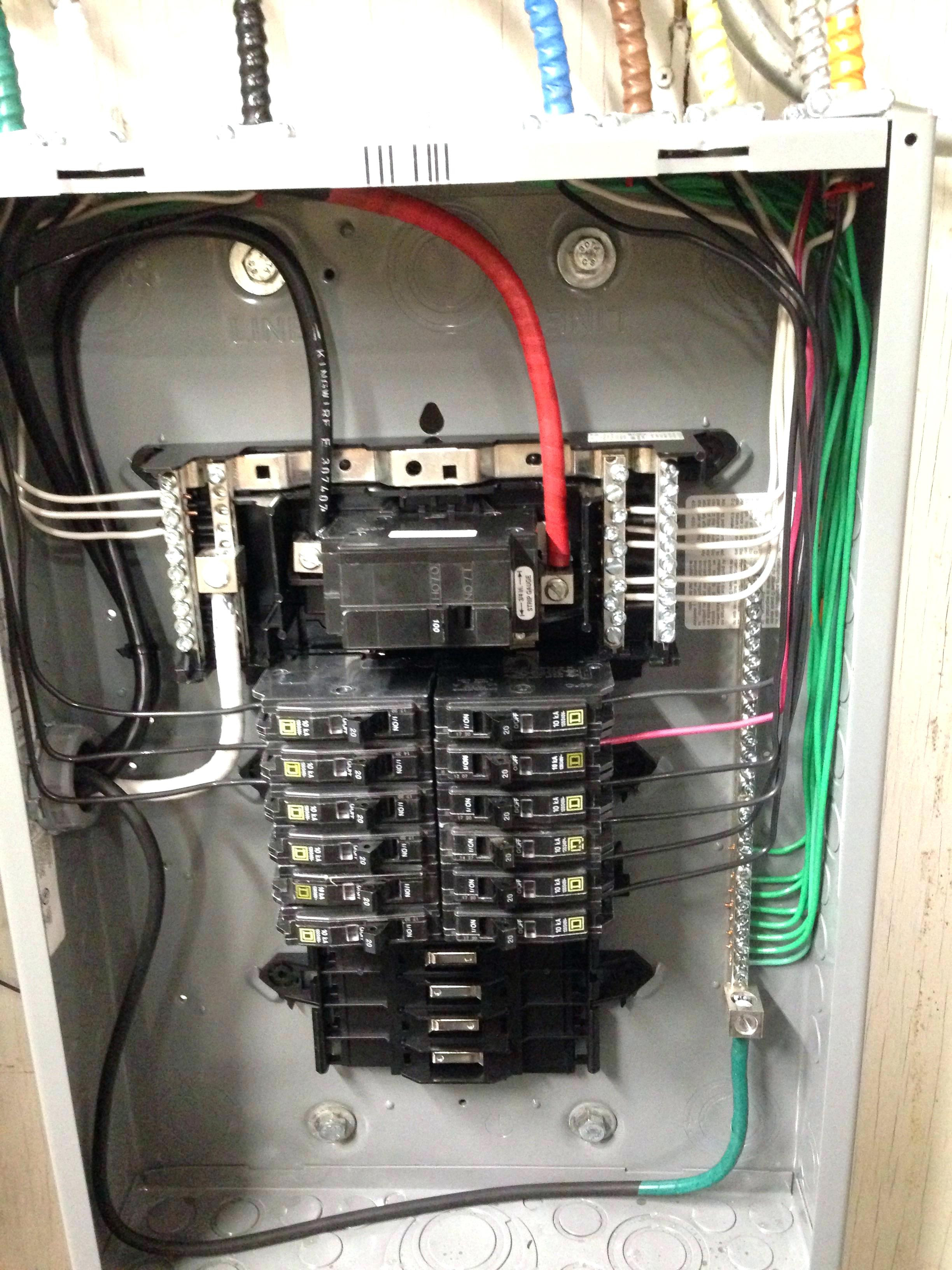Choosing The Right 100amp Wire Size For Your Electrical Needs
Whether you're setting up a new home electrical system, upgrading an existing one, or working on a large-scale industrial project, understanding the appropriate wire gauge is essential. Using the wrong wire size can lead to overheating, electrical fires, or system failures. This article dives deep into everything you need to know about 100amp wire size, ensuring you make informed decisions for your electrical projects.
Electrical systems are the backbone of modern infrastructure, powering homes, businesses, and industries. However, the efficiency of these systems depends heavily on the quality and appropriateness of the components used, including the wire size. For a 100-amp service, the wire must be able to handle the current load without overheating or causing voltage drops. This guide will walk you through the factors to consider, the types of wires available, and how to calculate the correct wire size for your needs.
From understanding the National Electrical Code (NEC) requirements to exploring the differences between copper and aluminum wires, this article provides comprehensive insights. Whether you're a homeowner, electrician, or DIY enthusiast, you'll find valuable information to ensure your electrical system is safe, reliable, and optimized for performance. Let’s explore the key aspects of 100amp wire size and how to make the best choice for your specific application.
Read also:Exploring The Legacy Of James Caans Son A Rising Star In Hollywood
Table of Contents
- What is 100amp Wire Size?
- Why Does 100amp Wire Size Matter?
- How to Choose the Right 100amp Wire Size?
- Is Copper or Aluminum Better for 100amp Wire Size?
- What Are the Common Mistakes with 100amp Wire Size?
- How Does Distance Affect 100amp Wire Size?
- What Are the NEC Guidelines for 100amp Wire Size?
- How to Calculate Voltage Drop for 100amp Wire Size?
- What Are the Best Practices for 100amp Wire Size?
- Frequently Asked Questions About 100amp Wire Size
What is 100amp Wire Size?
The term "100amp wire size" refers to the gauge or thickness of the wire required to safely carry a 100-amp electrical current. The wire size is determined by the amount of current it needs to handle, the length of the wire, and the material it's made from. For most residential applications, a 100-amp service is standard, and the appropriate wire size ensures the system operates safely and efficiently.
Typically, a 100-amp service requires either a 2-gauge copper wire or a 1/0-gauge aluminum wire. These sizes are designed to minimize resistance and prevent overheating. Understanding the basics of wire sizing is essential for anyone involved in electrical work, as it directly impacts the safety and functionality of the system.
Why Does 100amp Wire Size Matter?
Choosing the correct 100amp wire size is not just a matter of compliance; it’s a matter of safety. Using a wire that’s too small for the current load can result in excessive heat buildup, which may lead to insulation damage, electrical fires, or equipment failure. On the other hand, using a wire that’s too large can be unnecessarily expensive and difficult to work with.
Additionally, the right wire size ensures minimal voltage drop, which is critical for maintaining the performance of electrical devices. A significant voltage drop can cause appliances to underperform or even fail. By selecting the appropriate 100amp wire size, you ensure that your electrical system operates reliably and safely.
How to Choose the Right 100amp Wire Size?
Selecting the correct 100amp wire size involves several factors, including the type of material, the length of the wire, and the environmental conditions. Here are some key considerations:
- Material: Copper is more conductive than aluminum, meaning smaller copper wires can carry the same current as larger aluminum wires.
- Distance: Longer wire runs require larger gauges to compensate for voltage drop.
- Environment: Wires exposed to high temperatures or moisture may need additional insulation or a larger size.
Is Copper or Aluminum Better for 100amp Wire Size?
Both copper and aluminum are commonly used for electrical wiring, but they have distinct advantages and disadvantages. Copper is more conductive, which means it can carry more current with a smaller wire size. However, it is also more expensive. Aluminum, on the other hand, is lighter and more affordable but requires a larger gauge to handle the same current as copper.
Read also:Daniel Radcliffe Age 2000 A Journey Through Time And Stardom
For a 100amp wire size, copper is often preferred for its superior conductivity and durability. However, aluminum is a cost-effective alternative for longer runs or larger projects. The choice ultimately depends on your budget, project requirements, and personal preference.
What Are the Common Mistakes with 100amp Wire Size?
One of the most common mistakes when working with 100amp wire size is underestimating the importance of proper sizing. Using a wire that’s too small can lead to overheating and potential hazards. Another mistake is ignoring the impact of distance on voltage drop, which can affect the performance of your electrical system.
To avoid these mistakes, always consult the NEC guidelines and use a wire size calculator to determine the appropriate gauge for your project. Additionally, ensure that all connections are secure and that the wire is properly insulated to prevent damage.
How Does Distance Affect 100amp Wire Size?
The length of the wire run plays a significant role in determining the appropriate 100amp wire size. Longer distances result in greater resistance, which can lead to voltage drop. To compensate for this, larger wire gauges are required to ensure the system operates efficiently.
For example, a 100-amp service with a 50-foot wire run may require a 2-gauge copper wire, while a 200-foot run may need a 1/0-gauge copper wire. Always account for the distance when selecting your wire size to avoid performance issues.
What Are the NEC Guidelines for 100amp Wire Size?
The National Electrical Code (NEC) provides specific guidelines for wire sizing to ensure safety and compliance. According to the NEC, a 100-amp service typically requires a 2-gauge copper wire or a 1/0-gauge aluminum wire. These guidelines are based on factors such as current load, temperature ratings, and insulation type.
It’s important to consult the latest NEC standards when planning your electrical project, as they are regularly updated to reflect new technologies and safety requirements. Always work with a licensed electrician to ensure your installation meets all applicable codes and regulations.
How to Calculate Voltage Drop for 100amp Wire Size?
Calculating voltage drop is essential for ensuring your electrical system operates efficiently. The formula for voltage drop is:
Voltage Drop = (2 x Length x Current x Resistance) / 1000
Where:
- Length is the distance of the wire run in feet.
- Current is the amperage of the circuit (100 amps in this case).
- Resistance is the resistance per 1,000 feet of wire, which varies by gauge and material.
For a 100amp wire size, aim for a voltage drop of no more than 3% to ensure optimal performance. Use a voltage drop calculator or consult a professional to determine the appropriate wire size for your project.
What Are the Best Practices for 100amp Wire Size?
To ensure the best results when working with 100amp wire size, follow these best practices:
- Always consult the NEC guidelines and local building codes.
- Use a wire size calculator to determine the appropriate gauge for your project.
- Choose high-quality materials and ensure all connections are secure.
- Consider future needs and potential upgrades when selecting wire size.
Frequently Asked Questions About 100amp Wire Size
What is the minimum wire size for a 100-amp service? The minimum wire size for a 100-amp service is typically 2-gauge copper or 1/0-gauge aluminum.
Can I use a smaller wire for a 100-amp service? No, using a smaller wire can lead to overheating and potential hazards. Always use the appropriate wire size for your current load.
How do I know if my wire size is correct? Consult the NEC guidelines and use a wire size calculator to verify the appropriate gauge for your project.
By following these guidelines and understanding the importance of 100amp wire size, you can ensure your electrical system is safe, efficient, and reliable. Whether you're a professional electrician or a DIY enthusiast, this knowledge will help you make informed decisions and avoid costly mistakes.
Maine Coon: The Largest Cat In The World
Understanding Mould On Chocolate: Causes, Prevention, And Solutions
Pond Lake Difference: A Comprehensive Guide To Understanding Water Bodies

What Size Wire 100 Amp Subpanel

Size Of Electrical Wire Charts